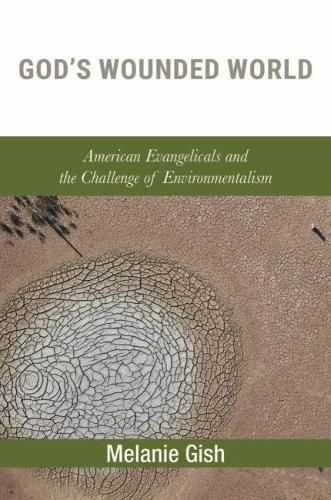Readings Newsletter
Become a Readings Member to make your shopping experience even easier.
Sign in or sign up for free!
You’re not far away from qualifying for FREE standard shipping within Australia
You’ve qualified for FREE standard shipping within Australia
The cart is loading…






Although evangelicals and environmentalists at large still find themselves on opposing sides of an increasingly contentious issue, there is a counternarrative that has received little attention. Since the late 1970s, evangelical creation care advocates have worked relentlessly both to find a common cause with environmentalists and to convince fellow evangelicals to engage in environmental debate and action. In God’s Wounded World , Melanie Gish analyzes the evolution of evangelical environmental advocacy in the United States. Drawing on qualitative interviews, organizational documents, and other texts, her interdisciplinary approach focuses on the work of evangelical environmental organizations and the motivations of the individuals who created them. Gish positions creation care by placing mainstream environmentalism on one side and organized evangelical environmental skepticism on the other. The religiopolitical space evangelical environmental leaders have established in-between but still within is carefully explored, with close attention to larger historical context as well as to creation care’s political opportunities and intraevangelical challenges. The nuanced portrait that emerges defies simple distinctions.Not only are creation care leaders wrestling with questions of environmental degradation and engagement, they also must grapple with what it means to be an evangelical living faithfully in both present-day America and the global community. As Gish reveals, evangelical advocates’ answers to these questions place moral responsibility and mediation above ideology and dogmatic certainty. Such a posture risks political irrelevance in our hyperpartisan and combative political culture, but if it succeeds it could transform the creation care movement into a powerful advocate fora more accommodating and holistically oriented evangelicalism.
$9.00 standard shipping within Australia
FREE standard shipping within Australia for orders over $100.00
Express & International shipping calculated at checkout
Although evangelicals and environmentalists at large still find themselves on opposing sides of an increasingly contentious issue, there is a counternarrative that has received little attention. Since the late 1970s, evangelical creation care advocates have worked relentlessly both to find a common cause with environmentalists and to convince fellow evangelicals to engage in environmental debate and action. In God’s Wounded World , Melanie Gish analyzes the evolution of evangelical environmental advocacy in the United States. Drawing on qualitative interviews, organizational documents, and other texts, her interdisciplinary approach focuses on the work of evangelical environmental organizations and the motivations of the individuals who created them. Gish positions creation care by placing mainstream environmentalism on one side and organized evangelical environmental skepticism on the other. The religiopolitical space evangelical environmental leaders have established in-between but still within is carefully explored, with close attention to larger historical context as well as to creation care’s political opportunities and intraevangelical challenges. The nuanced portrait that emerges defies simple distinctions.Not only are creation care leaders wrestling with questions of environmental degradation and engagement, they also must grapple with what it means to be an evangelical living faithfully in both present-day America and the global community. As Gish reveals, evangelical advocates’ answers to these questions place moral responsibility and mediation above ideology and dogmatic certainty. Such a posture risks political irrelevance in our hyperpartisan and combative political culture, but if it succeeds it could transform the creation care movement into a powerful advocate fora more accommodating and holistically oriented evangelicalism.